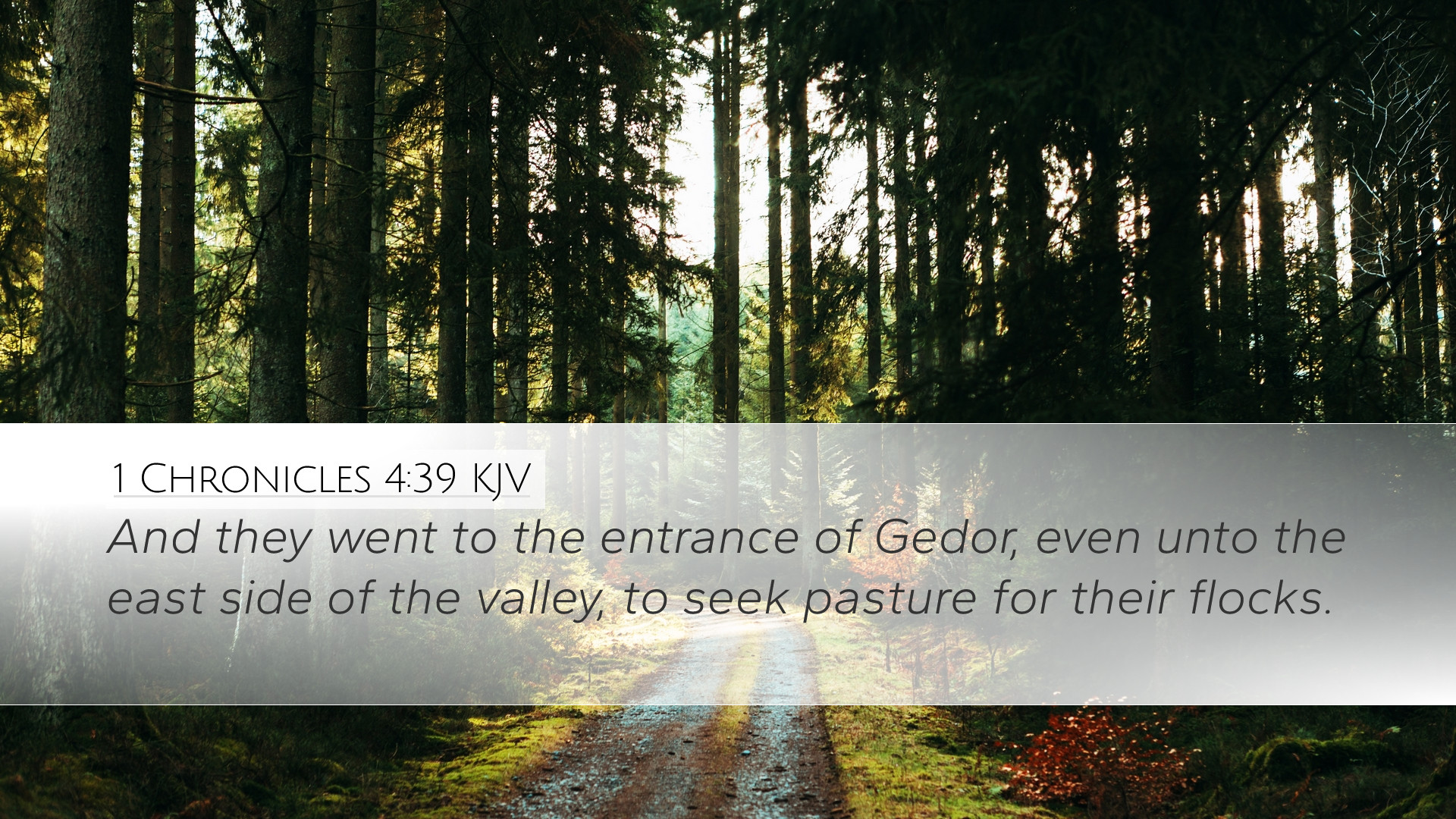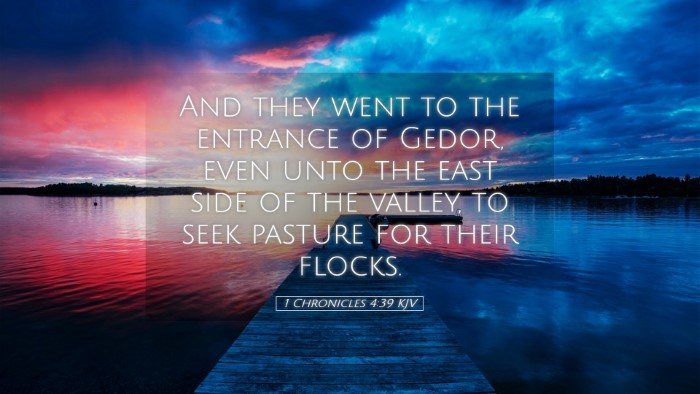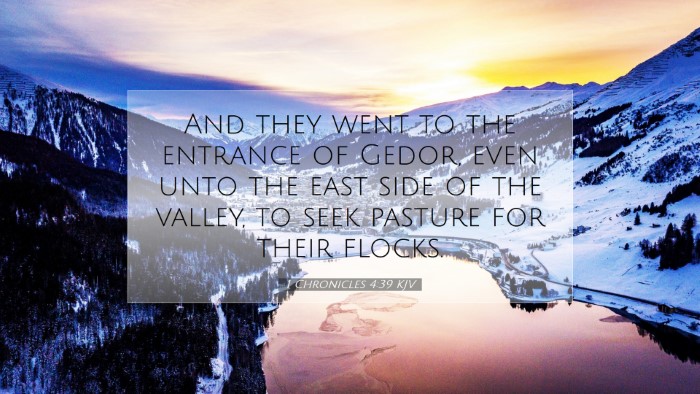Commentary on 1 Chronicles 4:39
Verse Context: 1 Chronicles 4:39 (KJV) states, "And they went to the entrance of Gedor, even unto the east side of the valley, to seek pasture for their flocks." This passage occurs within a genealogy context that records the descendants of Judah, emphasizing the commercial and pastoral life of the tribes.
Commentary Insights
1. Historical Context
Understanding the historical context of 1 Chronicles is essential for grasping its meaning. The Chronicler focuses primarily on the southern kingdom of Judah and the Davidic line. This verse serves as a transition into illustrating the daily lives and challenges faced by the tribes, which reflects their dependence on God for sustenance and guidance.
2. Pastoral Life
The mention of seeking pasture for their flocks highlights the pastoral lifestyle of the tribes. Matthew Henry remarks that the agrarian culture of ancient Israel illustrates the importance of land and ecological stewardship. This demonstrates not only their livelihood but also their connection to the land and God’s provision.
3. Geographic Significance
The reference to the "entrance of Gedor" and the "east side of the valley" further contextualizes their search. Albert Barnes explains that Gedor was a city located near the border of Philistia, indicating both geographical challenges and opportunities for livestock herding. The valleys and open land were vital for the sustenance of their flocks, showcasing God’s provision in a land where competition for resources was often fierce.
- Geographical Features: The topography played a crucial role in their survival, indicating the importance of physical geography in biblical narratives.
- Cultural Practices: The emphasis on flock herding reflects the prevailing cultural practices and their reliance on agriculture.
4. Theological Implications
This passage raises theological questions about reliance on God for provision. Adam Clarke suggests that the endeavor to seek pasture can be paralleled with the believer's search for spiritual nourishment. Just as the tribes sought pasture for their flocks, so too should Christians seek the spiritual sustenance that comes from God.
Faith in Action
The act of seeking pastoral land can be seen as a metaphor for the believer’s pursuit of a deeper relationship with God, wherein He is the ultimate shepherd. This imagery ties back to Psalm 23:1, "The LORD is my shepherd; I shall not want," reiterating God's sufficiency in providing all needs.
5. Community and Cooperation
Seeking pasture often required cooperation among tribes and clans. Matthew Henry highlights the importance of community support in achieving common goals. The verse can be perceived as a call to communal living, emphasizing unity and shared resources, which is central to the life of the early Israelites.
- Community Support
- Shared Responsibilities
6. Principles for Ministry
For pastors and church leaders, 1 Chronicles 4:39 provides several principles relevant to ministry:
- Dependence on God: Like the tribes, ministry should be undertaken with reliance on God’s provision.
- Community Building: Foster a culture of cooperation and support among the congregation.
- Geographical Awareness: Recognize the needs of the community and engage with the physical context in which ministry occurs.
7. Conclusion
1 Chronicles 4:39 serves as a microcosm of broader biblical themes regarding God's provision, community, and trust. It underscores the importance of engaging actively in both the physical and spiritual needs of life. For students and scholars, this verse presents an opportunity to explore the relational dynamics between God, humanity, and the created order, inviting a deeper reflection on one’s own faith journey and ministerial practice.
Reflections and Application
As we examine our own lives, may we be encouraged to seek both pasture for our flocks and the spiritual nourishment our souls crave. Let us revisit the core truth that all provision is divinely orchestrated, guiding us to pursue our God-ordained purposes with diligence, while rooted in the community of faith.


